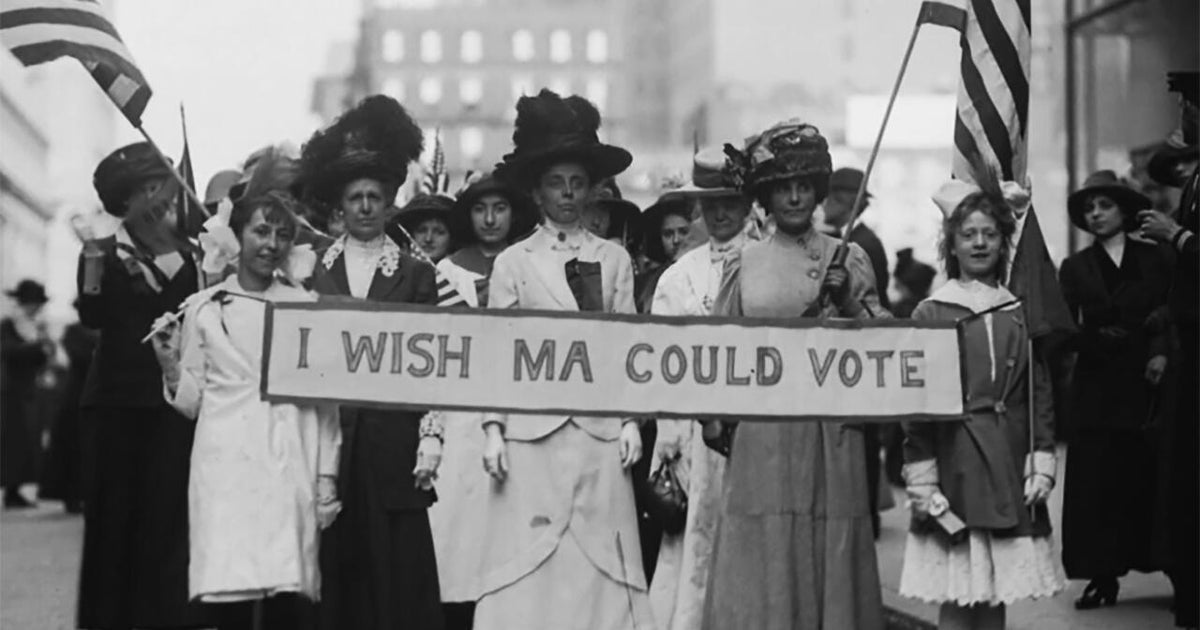The birth of "Sunday Morning"
For the most part, 1979 was a bummer.
That, after all, was the year Islamic fundamentalists stormed the U.S. Embassy in Tehran and seized 53 Americans, who were then subjected to their long ordeal in captivity. And Iran's next-door neighbor, Afghanistan, was invaded by forces from the Soviet Union.
Here at home, there was the nuclear reactor accident at Three Mile Island, and across the country Americans were struggling to cope with what was then called the "misery index" - soaring inflation and interest rates.
Not much to cheer about in any of that.
But there were some bright moments amidst all the gloom. For example, 1979 was a good year for strong-willed women. Margaret Thatcher was elected Prime Minister of Britain, the first woman to hold that post, and Mother Teresa was awarded the Nobel Peace Prize.
Here at CBS, there was some good news early in the year and it was delivered in the attractive package of an innovative news program. For it was in late January 1979 that Sunday Morning was first beamed into American homes.
That broadcast was set in motion by a desire on the part of CBS News management to provide a weekly forum for one of its star correspondents - Charles Kuralt. Kuralt had already earned a place in the pantheon of broadcast journalism with his award-winning On The Road features, and Sunday Morning was designed to revolve around his engaging presence.
Still, even with Kuralt, it was a radical notion. At the time, magazine-style news programs were a risky proposition (for every 60 Minutes, there were plenty of failures), and the idea of launching one in the "hangover" hours of Sunday morning struck many observers as more than a little loony.
Bill Leonard, who was then president of CBS News, was well aware that such a program flew in the face of conventional wisdom.
"We know there won't be much of an audience for awhile, if ever," he told Kuralt and the show's producers. "But don't worry about ratings. This is one broadcast, thank heaven, that won't be driven by that."
To take on the challenge of making it work, Leonard appointed Robert "Shad" Northshield as Sunday Morning's executive producer. A battle-scarred veteran of the television news wars, Northshield had recently come to CBS from a long career at NBC News where, over the years, he had built up a reputation as one of the most inventive producers in the business.
It did not take Northshield long to demonstrate that he had not lost his creative touch. The blaring trumpet that has summoned viewers to the broadcast every Sunday for the past 20 years was his idea.
An even more startling departure from the norm was his decision to end each program with lingering "beauty" shots of America's wilderness, where the local fauna appeared to be undisturbed by human intrusion. At Northshield's insistence, there was never any narration over these pictures - just the natural sounds of birds or animals or, perhaps, the wind whistling through the trees.
Working in close harmony with his top deputy - another veteran producer named E.S. "Bud" Lamoreaux III - Northshield's conception of Sunday Morning was not so much a magazine show as a television counterpart of the inside feature sections of a major Sunday newspaper, such as the New York Times.
In Sunday Morning's premiere broadcast on January 28, 1979, Kuralt set down the guidelines for the show with his customary flair:
"Good Morning. Here begins something new. I'm Charles Kuralt and this is Sunday Morning, a 90-minute CBS News program that starts right now.
"Every Sunday morning we're going to bring you the news, of course, but we're going to spend most of this hour and a half together trying to explain what's happening to ourselves and to you. And we're not going to hurry through it.
"We have time for a background story on a major event … We have time to talk about art and music and books and movies, so we'll do that. Sports, of course, and we'll even deal each week with a subject that television rarely talks about - television."
Although it was Kuralt who embodied the spirit of the show and gave it its distinctive, highly literate tone, he was surrounded - from the beginning - by a strong supporting cast.
Almost all the cover stories in those early years were done by Richard Threlkeld. Ray Gandolf did the sports features, and Jeff Greenfield cast a witty and often ironic eye on the television industry. What those three correspondents had in common were a talent for gifted writing and a wry sensibility.
Other innovations followed. In Sunday Morning's second year, the show ran a profile of the renowned jazz pianist Billy Taylor, and Northshield was so impressed by his on-air manner that he hired Taylor to cover the jazz and popular music beat on a regular basis.
And not long after that, Northshield recruited the esteemed flutist Eugenia Zukerman to cover classical music. (When he telephoned Zukerman with the offer, her first impulse was to dismiss it as "a crank call.")
The novel broadcast was an instant critical success. Kudos were lavished on it by reviewers from all over the country, and during its very first year Sunday Morning won Peabody and DuPont awards.
Of all the points Kuralt made in his opening remarks on that first broadcast, perhaps the most significant was his assertion that "we're not going to hurry through it."
In sharp contrast to the rapid-fire, staccato pace of most television news programs, the often-lengthy reports on Sunday Morning moved across the screen in a thoughtful, leisurely flow. Or as Northshield often put it in those early days: "I want our stories to breathe!"
Over the years, inevitably, some of the key players moved on to other arenas, and yet the program has been able to maintain its high standards.
Northshield was succeeded, in turn, by Lamoreaux, Linda Mason and Missie Rennie, the current executive producer. When Kuralt stepped down as host, his shoes were filled by another Charles - Osgood. Gandolf passed his sports baton on to Robert Lipsyte, and following Greenfield in the slot of television critic was first Ron Powers and then John Leonard.
In each and every case, a thoroughbred was replaced by a thoroughbred, and throughout the past two decades Sunday Morning's stories continued to "breathe" the rarefied air of high-quality journalism.
So this Sunday when you hear the familiar trumpet and see the host come into view with the show's signature opening line - "I'm Charles Osgood and this is Sunday Morning" - you may want to raise your glass of orange juice in a toast to the screen and wish them all a Happy Birthday.
Written by Gary Paul Gates ©1999 CBS Worldwide Corp. All rights reserved



